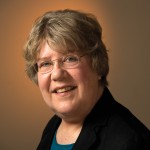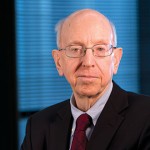BENCH BLOG: Posner’s deer hunting decision on the mark
By: Jean DiMotto//October 15, 2014//

In another interesting decision, 7th Circuit Court of Appeals Judge Richard Posner has allowed Native Americans to hunt deer at night, debunking concerns about safety.
Context for the decision
In 14-1051 Lac Courte Oreilles Band of Lake Superior Chippewa Indians of Wisconsin v. State of Wisconsin, various Wisconsin Indian tribes moved in federal court for relief from a 1991 judgment prohibiting the tribes from off-reservation night hunting of deer. Night hunting involves shining a bright light in the deer’s visual field, which makes the deer stationary, then shooting it with a rifle.
The hunting would take place on land that the tribes ceded to the United States in the 19th century, an area which comprises a large part of the northern half of the state. The cession treaties reserved Native Americans’ right to hunt in the ceded territory.
States are allowed to regulate Native American activities in ceded territory to the extent needed “to protect [the state’s] natural resources and its citizens.” This limited jurisdiction allows the state to act to protect public safety. And safety concerns were the lynchpin of the 1991 judgment against the tribes.
At that time, night hunting was primarily done on reservations. Rarely, law enforcement or employees of the Department of Natural Resources shot deer at night in the ceded territory. The rarity was based on concerns that night hunting was dangerous.
Things changed in the late 1990s. State employees and private state contractors markedly increased their night hunting to address the explosion in the deer population; deer frequently cause serious traffic accidents. In addition, with the “advent of chronic wasting disease, a fatal disease common among deer,” night hunting was done with the intent to eradicate the disease.
Lower court proceedings
Western District of Wisconsin Judge Barbara Crabb presided over the tribes’ motion for relief from the 1991 judgment on the grounds that its continued enforcement was no longer equitable.
The tribes argued that Wisconsin now had greater experience with night hunting than it did some 20 years ago. They asserted that the experience showed night hunting to be safe, given statistics about the greatly reduced incidence of hunting accidents as weighed against Wisconsin’s population and the popularity of hunting.
The tribes also contended that tribal members need to hunt for subsistence purposes, noting tribal members’ extraordinarily high unemployment and poverty rates. Moreover, the leanness of deer meat is healthy to tribal members who have a disproportionately high incidence of diabetes and heart disease.
The tribes also noted the need to hunt at night for cultural and religious reasons. Fresh venison “may be needed for a ceremony, and the only opportunity to obtain it may be at night” when deer are more active.
Crabb rejected the tribes’ arguments on several grounds, primarily that safety measures proposed by the tribes may be more lax than that of state employees or contractors.
Additionally, she noted that the 21-year time lapse since the judgment, including four years after the chronic wasting initiative had ended, “in itself might be good cause for denying their motion.”
7th Circuit opinion

Posner jumped on the safety concerns. He opined that the safety record of deer hunting on reservations is “outstanding.”
“Furthermore, there’s no evidence that the state agents who hunt deer at night are experienced or well-trained. Apparently many are neither” according to a 2006 DNR report.
Native Americans, in contrast, are experienced hunters who are required to pass a marksmanship test in order to be licensed as hunters. Moreover, an expert witness reported that the tribes’ proposed permit requirements for night hunting were “far more stringent” than those Wisconsin imposes on its hunters.
Posner noted that the ceded territory is “thinly populated” and that there are less people about at night than during the day, especially during night deer-hunting season (Nov. 1 through the first Monday in January, except during Wisconsin’s regular nine-day deer hunting season).
The court rejected Crabb’s belief that the lengthy period of time between the 1991 judgment and the 2012 motion could be a reason to deny the motion. “The longer the wait, the more evidence … accumulated bearing on the safety of night hunting of deer.” Additionally, “the passage of time renders [regulatory decrees] obsolete so that modification or rescission actually grows with time.”
Lastly, the court noted that Minnesota and Michigan have allowed tribes to hunt deer at night for at least a decade. There are sufficient similarities among the three states that if on remand Crabb thought it relevant, she could invite the state to produce evidence from the other two states countering the tribes’ record in this case that night hunting is safe in the ceded territory.
Commentary
Seeing such an excellent judge as Crabb reversed by the 7th Circuit reminds me that even good judges are not immune from the sting of reversal.
Posner is his usual plain-spoken self. While the opinion is not organized in a traditional manner, it passes the well-written test of making the content difficult to paraphrase.
His reasoning on the safety issue hits it out of the ballpark. He is also trenchant in his analysis of the 21-year “delay” in the tribes’ bringing the motion.
Given the cogency of the opinion, I think it unlikely that the state will be required to produce the additional comparative data that Posner suggested as a possibility. Rather, I predict that the remand will result simply in the granting of the tribes’ motion.
Legal News
- Former law enforcement praise state’s response brief in Steven Avery case
- Eric Toney announces re-election bid for Fond du Lac County District Attorney
- Former Wisconsin Democratic Rep. Peter Barca announces new bid for Congress
- Republicans file lawsuit challenging Evers’s partial vetoes to literacy bill
- More human remains believed those of missing woman wash up on Milwaukee Co. beach
- Vice President Harris returning to Wisconsin for third visit this year
- Wisconsin joins Feds, dozens of states to hold airlines accountable for bad behavior
- Trump ahead of Biden in new Marquette poll
- Bankruptcy court approves Milwaukee Marriott Downtown ‘business as usual’ motion
- New Crime Gun Intelligence Center to launch in Chicago
- Arrest warrant proposed for Minocqua Brewing owner who filed Lawsuit against Town of Minocqua
- Wisconsin Supreme Court justices question how much power Legislature should have
WLJ People
- Power 30 Personal Injury Attorneys – Russell Nicolet
- Power 30 Personal Injury Attorneys – Benjamin Nicolet
- Power 30 Personal Injury Attorneys – Dustin T. Woehl
- Power 30 Personal Injury Attorneys – Katherine Metzger
- Power 30 Personal Injury Attorneys – Joseph Ryan
- Power 30 Personal Injury Attorneys – James M. Ryan
- Power 30 Personal Injury Attorneys – Dana Wachs
- Power 30 Personal Injury Attorneys – Mark L. Thomsen
- Power 30 Personal Injury Attorneys – Matthew Lein
- Power 30 Personal Injury Attorneys – Jeffrey A. Pitman
- Power 30 Personal Injury Attorneys – William Pemberton
- Power 30 Personal Injury Attorneys – Howard S. Sicula






